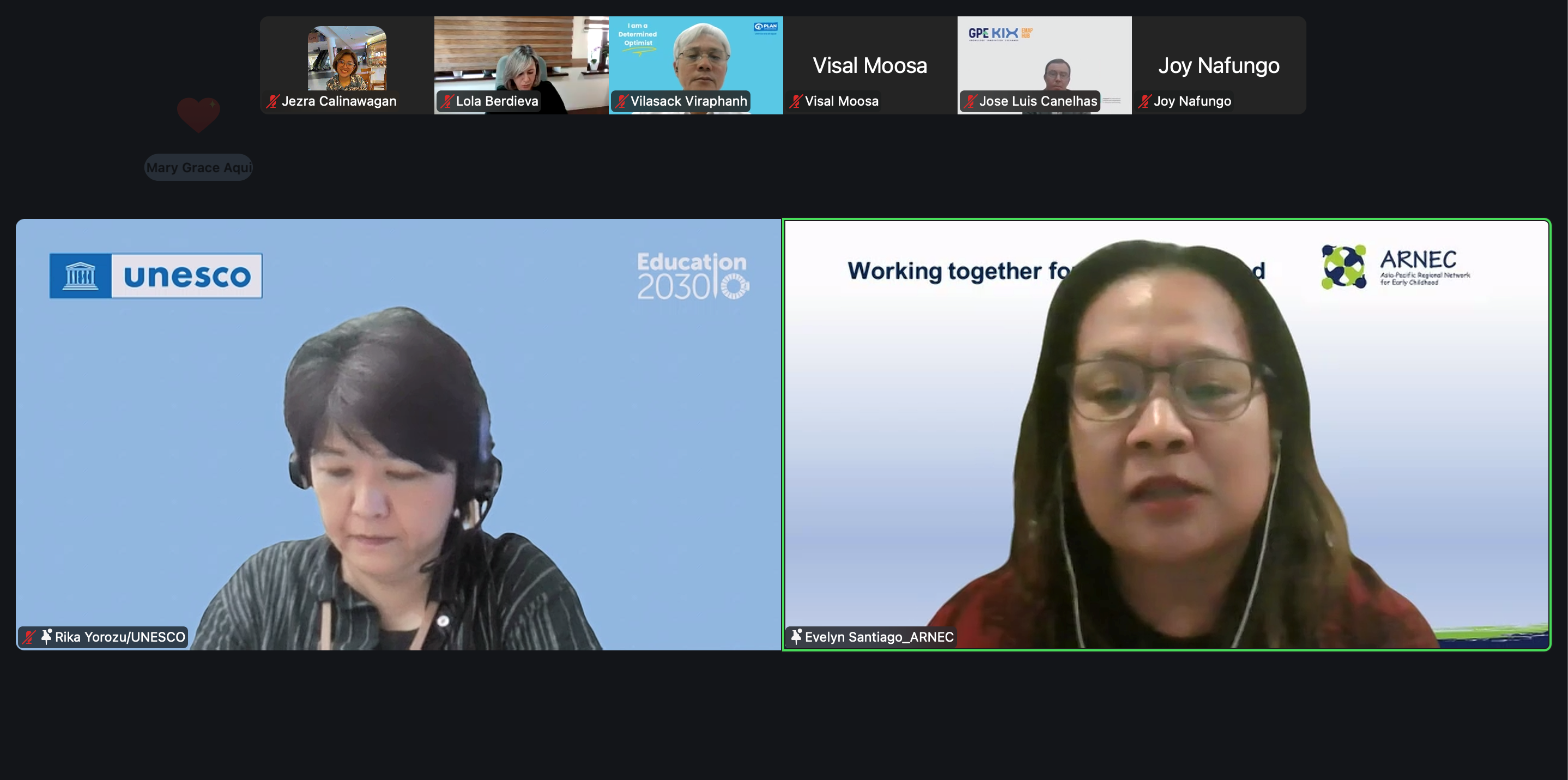ARNEC joins UNESCO Bangkok, KIX EMAP forum advancing ECCE
Advocacy : ECD Governance, Policy, and Financing
In November, ARNEC collaborated with UNESCO Bangkok and the Knowledge and Innovation Exchange (KIX) Europe, Middle East and North Africa, Asia and Pacific (EMAP) Hub to host a webinar that advanced Early Childhood Care and Education (ECCE) in the Asia-Pacific region. The webinar presented the recently published Asia-Pacific ECCE Regional Factsheet.
Over 260 participants from 32 countries attended the webinar, which featured roundtable discussions with government ministries and experts.
The first roundtable discussed the achievements, initiatives, and challenges faced by the Ministries of Education of Uzbekistan, Sri Lanka, and Cambodia in ECCE at the country level. The second roundtable highlighted the significance of evidence-based knowledge exchange in addressing ECCE issues, showcasing ARNEC and KIX EMAP-supported projects.
ARNEC presented how evidence was generated and utilised in Indonesia and the Philippines to design and implement context-appropriate solutions that promote parenting and responsive caregiving in pilot urban and rural local government units. This included fostering the willingness, readiness, and competencies of the local workforce and sub-national and local government partners.
Through the MORECare4YoungChildren Project, supported by the UBS Optimus Foundation, ARNEC has collaborated with the National Coalition of Holistic Integrative Early Childhood Development in Indonesia and the ECCD Council of the Philippines to introduce system-wide change in support of the transformation of parenting and caregiving practices for children under three years of age. This initiative serves as a pathway for a seamless transition to pre-schools and formal education systems commencing at the age of five, which is one of the key advocacy measures of UNESCO Bangkok.
In delivering the concluding remarks, ARNEC’s Executive Director Evelyn Santiago underscored the importance of adopting a holistic approach to advancing ECCE that encompasses financing and investment, developing the capacity and well-being of the ECCE workforce, generating and utilising data and evidence, adopting multi-sectoral approaches, and integrating climate resilience into ECCE policy and actions.
